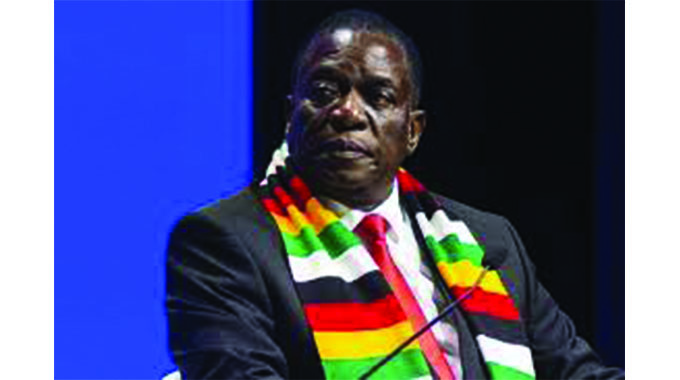COMMENT:Zimbabwe is soaring, soaring and soaring

OUR country will make its own piece of history tomorrow when it launches its first satellite into space.
The work started in 2018 when President Mnangagwa launched the Zimbabwe National Geospatial and Space Agency (ZINGSA). The eagerly-awaited moment is thus a culmination of four years of detailed planning, deep learning and supreme ambition not only on the part of the Government but also on the part of our space scientists.
At 11.30am tomorrow Zimbabwe will join the elite crop of nations that have launched satellites into space, our own ZimSat-1 soaring into orbit from the Japanese KIBO Module.
ZINGSA co-ordinator Mr Painos Gweme said of the nanosatellite:
“This has a multi-sectoral camera . . . which we are going to use primarily for agricultural application, crop yield estimation, land cover and land use. We can see our forestry and the change over time because it has what we call a store and forward mission as part of the pilot which we are going to use together with the ground centre terminal,” he said.
He added that the technology can also be used for urban and rural planning.
The only African countries that have launched satellites into space are Algeria, Angola, Egypt, Ethiopia, Ghana, Kenya, Morocco, Nigeria, Rwanda, South Africa and Sudan. Zimbabwe will become the 12th on a continent of 54 nations.
We are sure public attention will be on the live coverage of the deployment and countdown commentary that will begin at 11:30am tomorrow, and air on NASA Television and the agency’s website, as well as YouTube, Twitter, and NASA’s App <https://www.youtube.com/watch?v=21X5lGlDOfg>
We are looking forward to this launch. It gives all patriots that special feeling, that spring in the step, joining the small group of nations that have dispatched satellites yonder.
But while a successful deployment gives that huge feeling of satisfaction, ZimSat-1 is going up there to work, as Mr Gweme said.
It will help us be able to predict weather phenomena so that response mechanisms can be deployed as appropriate. The phenomena can be droughts, cyclones, floods and so on. In addition, we will be able to determine land use systems more accurately and adjust where there is need for adjustment. We will be better able to estimate harvests and enable authorities to plan and act ahead of time.
It is our considered view too that national representation in space asserts the collective ambition of a people, it represents drive; it articulates our future, our mindset as a people. And success in this world is for those who set big goals and move resolutely to attain them.
So, yes, we are proud that tomorrow will be momentous as we send our first ambassador into space. However, as noted earlier, more importantly will be the developmental data that ZimSat-1 will collect and relay to the Mazowe Earth Satellite in Mashonaland Central Province to inform Government policy and programmes.
Instead of us getting information from other nations that are in space, we will, through ZimSat-1, collect our own data to inform our policies and programmes. That must be satisfying, isn’t it? It is like a people who produce the food they eat instead of begging; it is like a people who build their infrastructure using their resources.
Mr Gweme said for the past two years, local teams have been training in Japan on how to assemble, design and test and launch satellites. This means that the work is being done by Zimbabweans, of course, with assistance from the Japanese whose space programme pre-dates ours by decades.
By and large all this is consistent with President Mnangagwa’s philosophy “Nyika inovakwa nevene vayo/Ilizwe lakhiwa ngabaninilo.”
Whatever detractors may say, the space programme, and numerous more successes that the Second Republic has scored in building public infrastructure, reviving agriculture and industry and so on represent genuine progress.











Comments